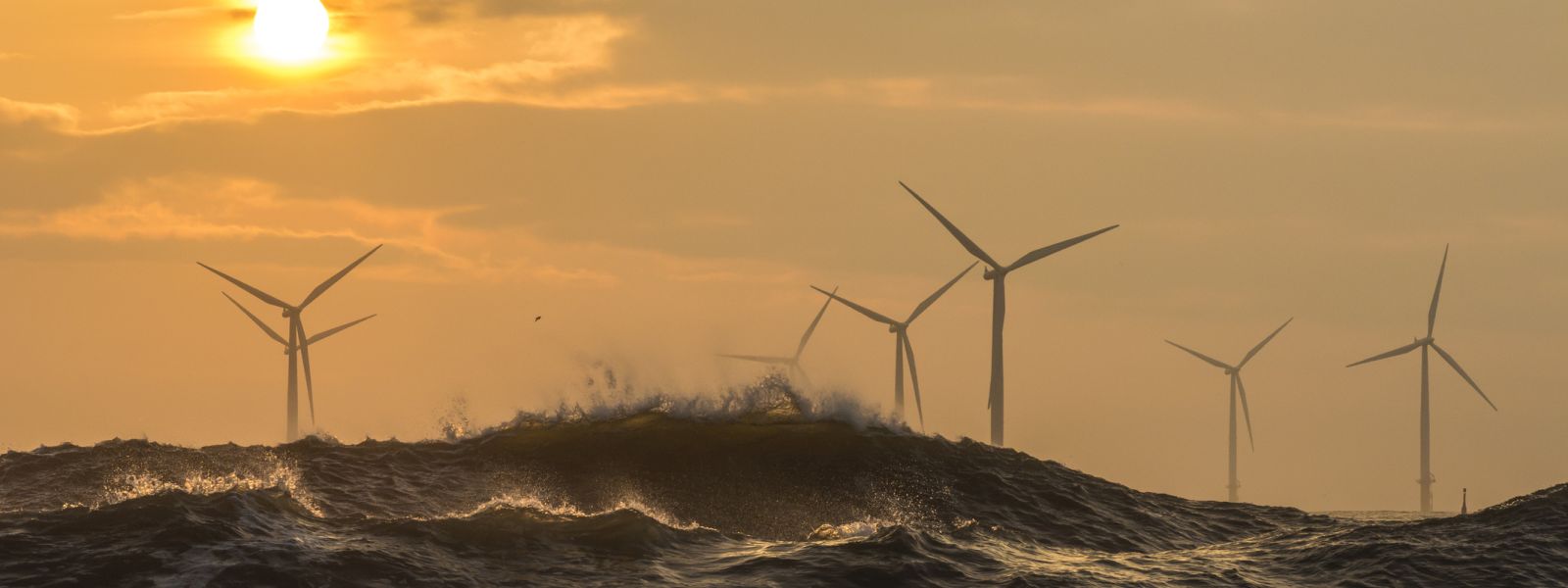
Strathclyde is a partner in three energy network innovation projects which will help to accelerate the UK’s transition to net zero at the lowest cost to consumers.
The three projects involving Strathclyde are among 40 which have received up to £150,000 each to carry out a two-month ‘discovery’ phase on their potential.
The funding is being provided by energy network users and consumers through the Strategic Innovation Fund (SIF), a programme from the UK’s independent energy regulator Ofgem, managed in partnership with Innovate UK.
The projects address some of the biggest challenges that energy networks face in the journey to net zero and focus on heat, zero emission transport, data and digitalisation, and whole system integration.
The projects involving Strathclyde and researchers from the Department of Electronic and Electrical Engineering and its Institute for Energy and Environment, are:
- INCENTIVE – Innovative Control and Energy Storage for Ancillary Services in Offshore Wind, led by Scottish Hydro Electric Transmission Plc (£121,000), which will explore the opportunity to stabilise the grid through voltage, current and frequency control technologies for offshore wind. Partners include The Carbon Trust and National Grid Electricity System Operator Ltd.
- SCADENT – SuperConductor Applications for Dense Energy Transmission, led by National Grid Electricity Transmission Plc (£148,437), which will aim to understand the impact and benefits of using High Temperature Superconductor cables. Other partners include: University of Manchester, Ørsted, Western Power Distribution, SP Transmission, UK Power Networks, Nexans France, AMSC, and Frazer-Nash Consultancy.
- EN-twin-e – led by SP Transmission (£17,563), which seeks to develop a digital twin of the electricity distribution system to aid decision making when managing and balancing assets. Other partners include: Digital Catapult, National Grid Electricity System Operator and SP Distribution.
Future economy
Dr Adam Dysko will lead the Strathclyde team including Dr Agustí Egea, Dr Qiteng Hong and Dr Dimitrios Tzelepis, which will offer technical expertise to the INCENTIVE project on the state-of-the-art converter topologies and innovative control strategies.
Dr Dysko said: “The overarching aim of this endeavour is to develop technically feasible and cost-effective ways of providing valuable voltage and frequency stability services to the onshore AC grid, using the significant, but largely untapped, potential of the offshore wind parks. The project will build upon the outcomes of the earlier Carbon Trust BAT-STAT project in which Strathclyde was also one of the key partners.”
Professor Weijia Yuan will lead the work package within the SCADENT project that will conduct state of art assessment of superconducting cable technologies together with colleagues Dr Qiteng Hong, Dr Panagiotis Papadopoulos.
Professor Weijia said: “By collaborating with manufacturers and network operators, we will deliver network assessment for the impact from superconducting cables and carry out a review of potential application locations for networks in Britain.”
Dr Panagiotis Papadopoulos, in collaboration with Dr Bruce Stephen and Dr Qiteng Hong will lead the EN-twin-e work package. He said: “The idea of EN-twin-e is to develop a digital twin that spans the transmission and distribution system and can be used to provide a service to National Grid ESO that will aid in decision making when choosing which distributed energy resources to use when balancing the National Electricity Transmission System. Having this more complete view of the transmission and distribution networks will ensure the expected response is received at transmission without adversely impacting distribution. In close collaboration with the project partners, we will identify key functionalities and requirements of the Digital Twin.”
Accelerate transition
Neil Kenward, Ofgem Director for Strategy and Decarbonisation, said: “Innovation in the energy sector is crucial to help us transform the way we travel, heat our homes, and fuel our industries at the lowest cost to consumers.
“Ofgem set up the Strategic Innovation Fund to help accelerate a transition to low carbon energy which is fair, affordable and inclusive for consumers.
“We hope these 40 pioneering green projects will blaze a trail in innovation that will help us diversify our energy supplies, protecting consumers from future energy shocks as well as protecting the planet.”
Indro Mukerjee, chief executive of Innovate UK, said: “We’re very pleased to be working closely with Ofgem and the energy sector on the Strategic Innovation Fund, and pleased with its progress. Innovate UK is committed to supporting the UK’s world-leading businesses and researchers to shape a sustainable and fair future economy.”
The Strategic Innovation Fund is a five-year programme with up to £450 million available to promote energy network innovation. Ofgem and Innovate UK are working to identify further innovation challenges for round two of the SIF, working closely with all energy networks, network users and consumers, and will issue another call for proposals in the autumn of 2022.
In 2020, the University of Strathclyde was awarded a Queen’s Anniversary Prize for Further and Higher Education for its excellence in energy innovation.